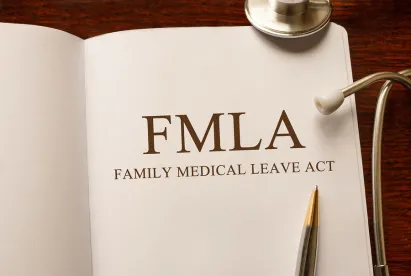The FMLA and CFRA both permit an employer to require an employee requesting a leave of absence to provide a medical certification, but these laws differ with respect to the information and employer can request about the reasons for an employee’s requested leave.
Under the FMLA, an employer is permitted to obtain the following information in a medical certification:
-
The name, contact information, and type of medical practice or specialization of the employee’s healthcare provider;
-
The approximate date on which the employee’s serious health condition commenced and the probable duration of the serious health condition;
-
A description of “appropriate medical facts” regarding the serious health condition adequate to support the need for leave (including information such as symptoms, diagnoses, hospitalizations, treatment regimens, and whether any medications have been prescribed);
-
Information sufficient to show the employee cannot perform the essential functions of the job, as well as information regarding work restrictions (where the requested leave is for the employee’s own serious health condition);
-
Information to establish the medical need for leave, as well as an estimate of the dates and duration of medical treatments or periods of incapacity necessitating leave (where the employee requests an intermittent or reduced-schedule leave for the employee’s own serious health condition);
-
A statement that leave is medically necessary to care for a family member (where intermittent or reduced-schedule leave is sought for an employee to care for a family member).
The rules under the CFRA with respect to information an employer can seek in a certification for an employee’s requested leave are narrower:
-
With regard to a request for leave for the employee’s own serious health condition, an employer only may require a certification to include the date on which the serious health condition began, the probable duration of the condition, and a statement that due to the employee’s serious health condition, the employee cannot perform the functions of his or her position.
-
Where an employee requests a CFRA leave to care for a family member, an employer is only allowed to require that a certification provide the date on which the serious health condition began, the probable duration of the condition, an estimate of the amount of time the healthcare provider thinks the employee will need to provide care to the family member, and a statement that the serious health condition warrants a family member’s provision of care.
-
In contrast to the FMLA, the CFRA does not allow an employer to require – and, in fact, expressly prohibits an employer from seeking – information that identifies the serious health condition necessitating the leave. An employer therefore cannot require a certification to include information about the symptoms, diagnoses, or other specific information behind a requested CFRA leave.
Where, as is often the case, a CFRA leave runs concurrently with an FMLA leave, it is incumbent on employers to adhere to the stricter provisions of the CFRA. When requiring certifications for employee leaves of absence, it is thus important for California employers to be mindful of these differences between federal and state law.




 />i
/>i

